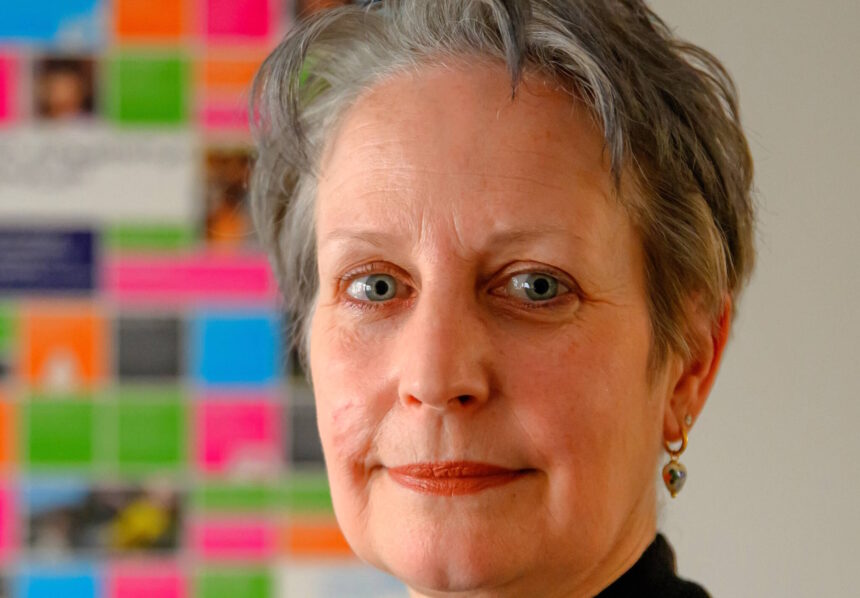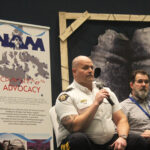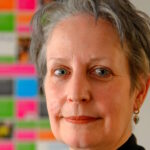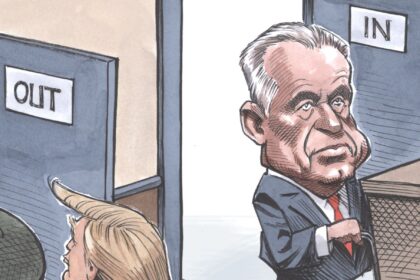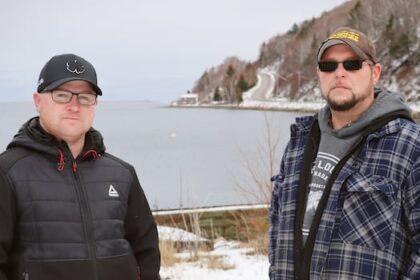By Cassandra Blondin Burt Over the last three years, I’ve had the immense joy and honour of writing for NNSL Media, and learning from family and community, leadership, Elders, knowledge-carriers and everyone else who has contributed to this Medicine Stories column. This will be my last dispatch for the foreseeable future, but one thing I have learned during my time here in the North — not just as a journalist or reporter, but with community and family, mostly — is that we don’t say ‘goodbye,’ we say ‘until next time;’ in all the various ways, words, gestures, glances, notes of love, comfort, hope and courage we share — all the ways human beings say ‘until next time’ and ‘I hope to see you again in the future.’ I took this job after running a radio show in Nanaimo, B.C., in 2019. It is a local community radio station, and my show ran weekly on Sunday evenings. I was able to play all the Indigenous rock and roll I wanted, and rant on and on about Indigenous politics and the ways of the world. I was a political theory student at Vancouver Island University in Nanaimo (Snuneymuxw territory), and I had many opinions. Being raised in a very political and spiritual house as a kid, I was accustomed to vocalizing, and defending, my perspectives — and listening to the opinions of others. I felt strange sitting in silence when I believed something needed to be said. On the small gulf island I lived on as a young adult in my 20s, I ran film festivals and slam poetry/open mic events with a political edge, and sat on boards that represented local movements for truth and reconciliation, transformative democracy, and worked with the local education board. Time to rebuild When I moved here, I knew everything would change. I knew I’d have to get to know everyone again and make my way from square one. I knew whatever work I had done before wouldn’t be more than a line on my resume. But I also knew (or hoped) that, in time, just like on the island, people would get to know me bit by bit, and as I took my time and learned about my family, history and Dene plant medicines, I could rebuild, or build, a life again. My relationships from the coast didn’t end when I moved. I’m so lucky to have connections in the Gulf Islands, off the coast of B.C., and to have been raised on the mainland with connections there. But my pull to drive north always sat in my heart, beating like a drum, a dream I couldn’t put into words. It was an ache for a land, a place, I did not yet know. I wanted to see women who looked like my mother, and grandmother, and to know why hope, love and courage surged through my veins every time I thought about leaving B.C. for Denendeh. When I moved to the North, I had my knowledge of some plants and basic herbalism, and storytelling had always been a part of my life. In language arts as a young person, I studied literature alongside philosophy at university, but I never set out to be a reporter or journalist. I moved to the North (for the second time) in 2022, on contract with Natural Resources as a researcher with a specialty in plant medicine, and an interest in Indigenous fire practices (‘cool burning’) as a tool for ecological remediation and a way to propagate and conserve sacred food and medicine plant systems. My friend and mentor, Katlia Laferte, knew I had moved here. She, who also writes for NNSL Media, was adamant that they need more Dene femme voices, and suggested I apply to write for NNSL. She introduced me to then-publisher Mike Bryant, who knew my great grandpa George, my uncle Ted, and most of the rest of my family, and he said something like he liked my ‘spark’ and that he’d give me a chance. My uncle Ted was such a huge supporter of me taking this job. Yes, I had support from a lot of my family, but Ted would sit with me for hours and we’d talk about his work in the media as a young Dene journalist. I’d read him columns out loud. We used to chat on the phone about my essays on political theory in university, and that evolved into long discussions on Dene life, history and politics in a way I understood at some profound level I had dreamed of as a student. I soon needed to shift more of my focus to my Natural Resources Canada Project on fire (which I’m still involved in) and couldn’t work full-time in the newsroom. So I agreed to stay as a freelance writer and columnist, and that leads us here. I have since had articles published in the Watershed Sentinel in B.C., with Ink Stick Media in the U.S., and the Yellowhead Institute, but now I have another shift happening. Learned so much I have learned so much from interviews with all of you — the readers of this paper, the people of Denendeh — and with every interview, my world is transformed. Each time journalists are let in to the private lives of amazing people, those journalists bear witness to the realness of humanity, aside from the edits and production that those stories will undergo before making it to print, or on screen. It’s an honour to sit with reality, with humans, and to do our best to reflect and honour those exchanges — however imperfect our reflections might be. In some small, or large, way, I make mistakes every time I write. But each time I make a “missed-take,” I am offered the chance to sit with it and ask how I might try that again, shift my actions, or make my position/humility/action/words stronger, or softer, or something in between. This is humanity. This is our collective future. These are our stories. And I have been so lucky to hear, witness, and learn from the stories shared with me here. I will miss this column, and working with this newspaper — I believe in it so much. The NNSL archives in the Yellowknife office on 50 Street hold a treasure of stories shared by many, but most important for me, stories by our Elders, our relatives, my great grandfather, my grandmother, my uncles and aunties and other relations who I might never meet, but all of whom contributed to this paper. They didn’t contribute just to “culture” pages or in beauty pageants, although they did this as well. They contributed to the voice of Dene, to Indigenous rights over many decades, for political change and (r)evolution and the reconnection between Elders and youth — to stand for what was, and is, right and true, and the greatest good for that particular challenge, epoch or day. Not perfectly. But it was enough. Brought to tears I remember finding my great grandfather’s articles in those early days (just a few years ago) and reading his words, tucked in the backroom archives at the NNSL Yellowknife office. I was full-on weeping — in gratitude, in awe, in humble respect at the words I felt so uplifted by. All my years as a student at a university couldn’t amount to the learnings I got from those archives, those yellowing newspaper pages. Nothing grounded or centred me as much as knowing I wasn’t alone in that newsroom, for all that I was still green. Now it’s time for me to leave NNSL, but I take all this with me, bundled into my little medicine bag of memories. I can still hear my Uncle Ted’s excitement when I took this job with Northern News Services Limited, but I know he’d be equally as excited for this new change in my career. And I know, in his own way, he’s still here, rooting me along. Rooting us all along, really. As the world shifts, I must shift with it, but more than ever, I believe that well-resourced, well-funded and well-supported local media is a fundamental pillar for a vibrant, healthy community, and necessary for a functioning civic-centred, participatory democracy. I will always be grateful to NNSL for giving me a voice without censor, all the love and support I’ve received from readers over the years, and for the folks I’ve met and learned from along the way. Mahsi cho. Until next time.
Thursday, 5 Mar 2026
Canada – The Illusion
Search
Have an existing account?
Sign In
© 2022 Foxiz News Network. Ruby Design Company. All Rights Reserved.
You May also Like
- More News:
- history
- Standing Bear Network
- John Gonzalez
- ᐊᔭᐦᑊ ayahp — It happened
- Creation
- Beneath the Water
- Olympic gold medal
- Jim Thorpe
- type O blood
- the bringer of life
- Raven
- Wás’agi
- NoiseCat
- 'Sugarcane'
- The rivers still sing
- ᑲᓂᐸᐏᐟ ᒪᐢᑿ
- ᐅᑳᐤ okâw — We remember
- ᐊᓂᓈᐯᐃᐧᐣ aninâpêwin — Truth
- This is what it means to be human.
- Nokoma


